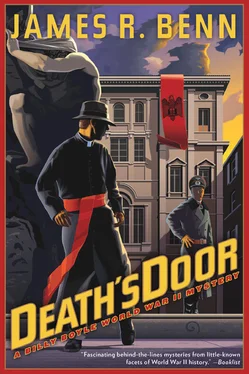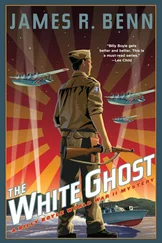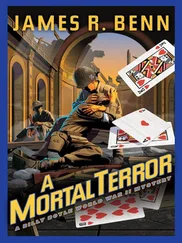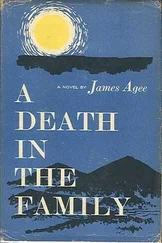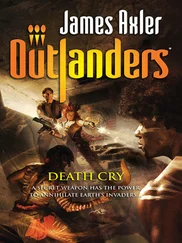James Benn - Death
Здесь есть возможность читать онлайн «James Benn - Death» весь текст электронной книги совершенно бесплатно (целиком полную версию без сокращений). В некоторых случаях можно слушать аудио, скачать через торрент в формате fb2 и присутствует краткое содержание. Жанр: Шпионский детектив, на английском языке. Описание произведения, (предисловие) а так же отзывы посетителей доступны на портале библиотеки ЛибКат.
- Название:Death
- Автор:
- Жанр:
- Год:неизвестен
- ISBN:нет данных
- Рейтинг книги:4 / 5. Голосов: 1
-
Избранное:Добавить в избранное
- Отзывы:
-
Ваша оценка:
- 80
- 1
- 2
- 3
- 4
- 5
Death: краткое содержание, описание и аннотация
Предлагаем к чтению аннотацию, описание, краткое содержание или предисловие (зависит от того, что написал сам автор книги «Death»). Если вы не нашли необходимую информацию о книге — напишите в комментариях, мы постараемся отыскать её.
Death — читать онлайн бесплатно полную книгу (весь текст) целиком
Ниже представлен текст книги, разбитый по страницам. Система сохранения места последней прочитанной страницы, позволяет с удобством читать онлайн бесплатно книгу «Death», без необходимости каждый раз заново искать на чём Вы остановились. Поставьте закладку, и сможете в любой момент перейти на страницу, на которой закончили чтение.
Интервал:
Закладка:
An hour later, we reached the outskirts of Pescara, which by wartime standards was unlucky enough to have a harbor, a main coastal road, and a railroad intersecting near the town center. It had evidently been recently hit by air raids. Rubble lined the roads, and some gutted buildings stood open, with floors of masonry, furniture, and the debris of families and businesses spilling into the street. Civilians, mostly women, were working at the bombed-out structures, stacking bricks with that click-clack sound I’d heard so many times before, the sound of life attempting to assert itself in the face of destruction. Around the corner, a church presented a gaping wound, the roof and side caved in, the altar exposed to the elements. The front wall was still intact, but the main doors had been blown off. Above the shards of wood, carved into a limestone lintel, it read Chiesa del Rosario. Church of the Rosary.
As we neared the railroad station, I saw where all the male civilians had gone. German troops guarded work gangs of Italian men and boys repairing damage to the rail line. Some were in coveralls, others labored in suits and white shirts caked with dirt and sweat. The Germans must have picked them right off the street and brought them here to fill in craters and get the rail bed back in shape. The air was filled with thick, gritty dust. Men looked up for a moment as we passed, and then bent back to their shovels and pickaxes, casting wary eyes at their overseers.
The mule cart stopped as we neared the station. We got off and Kaz thanked the woman, who, true to form, said nothing and urged her mule on. Probably best not to get involved with the passengers in her business.
Trees had once lined the road where it passed the train station. Now there were ruined limbs, blasted trunks, and a bomb crater filled with mud. The windows of the station were shattered, but other than that it was still standing. Good news, if you didn’t count the German guards at the door and along the platform. We had nowhere to go but forward. I clutched my suitcase, put one foot in front of the other, and prayed.
“Dokumente,” the first guard said. We handed them over. He looked at Kaz’s first, checked a list on a clipboard, and handed them back with a curt nod. As soon as he looked at mine, he called for his Leutnant.
“Irischer Burger,” he said, handing the papers over to the officer. I figured it wasn’t every day an Irishman got on a train in Pescara, so I wasn’t worried. Not much, anyway. He studied the identity papers and the travel documents from the Holy See.
“You are on Vatican business?” the officer said in clipped, precise English.
“Aye, that I am,” I said, laying on the accent. “Seeing to the refugees up north, not to mention those right here. Was it the damn English who did this? They destroyed the Church of the Rosary, did you see, man?”
“Yes, it must have been the Englanders. Only the British bomb at night.”
“Cowards that they are,” I said.
“You are on your way back to Rome?”
“Yes, Father Dalakis and I are returning from an inspection of the refugee centers in the north. As you can see,” I said with a smile, pointing to the letters, which were written out in German and Italian.
“What was it like?” he asked.
“Up north? As you’d expect. Many families separated, not enough food, churches packed with refugees. And the bombings, by all the saints, it’s terrible,” I said, crossing myself at the invocation.
“Suchen Sie ihr Gepack,” he said to the guard, who took our suitcases and opened them. “My apologies, Fathers, but we have captured a number of saboteurs in clever disguises. There are also many prisoners of war on the loose, since the Italians surrendered, all trying to make their way to Rome. This is simply routine.”
It was. Underwear, socks, a clean shirt, a Bible, and that two-day-old newspaper from Rimini. The officer looked at the newspaper and nodded to the guard, who stepped back.
“All is in order,” he said. “You may take your bags.”
I felt a flood of relief and hoped it didn’t show. A priest in my position would be used to this by now. Exasperated, maybe, but not relieved. We closed up the suitcases, ready to buy our tickets.
“One more question, please,” the officer said as we began to walk away. I remembered what Kaz had said about the Gestapo. They’d treat you nicely as first, to soften you up, then hit you hard. I felt my hand shake and put it in my pocket, another nonchalant traveler with a suitcase and a train to catch.
“Certainly, Leutnant,” Kaz said. I tried to look bored.
“You came from Rimini by train?”
“Aye,” I said. “And points north.”
“Then please explain how you got through. Ancona was heavily bombed for the last two nights. There have been no trains.”
My mind went numb. Was this what Diana had felt? Cornered, outsmarted, with nowhere to hide? I stood, unable to speak, hoping the pounding in my chest couldn’t be heard as thoughts of Gestapo kitchens ran through my mind.
“You are misinformed, Leutnant,” Kaz said with certainty. I broke out in a sweat, and worked to keep from looking around for a place to run to. For a second, I couldn’t catch my breath until I realized I was holding it. “We visited the Duomo there. Do you know that cathedral is almost a thousand years old? It is magnificent.” Kaz chattered on about the architecture until the officer waved us along, bored with the recitation.
“Kaz,” I whispered as we entered the station. “How were you so sure about the railroad?”
“It was obviously a trick,” he said. “And if it wasn’t, we were dead men anyway, so why not?”
“It wasn’t obvious to me.”
“Father Boyle,” Kaz said in a low voice. “If the rail line had been cut between here and Rimini, how did Hamilton get the newspaper in your suitcase?”
“Bless you, Father Dalakis, that was quick thinking,” I said, giving Kaz his due.
It should have been obvious to me. Not only the newspaper, but the interrogation technique. It didn’t matter that we’d come in on the train as we’d said. The Leutnant was looking for a reaction, that flicker of guilt that gives a liar away when he’s been found out. And I almost gave it to him. I should have picked up on it, but my mind had gone right to Diana and what she must’ve gone through. I needed to get my wits about me and focus on getting to Rome, not to mention avoiding the Gestapo kitchens.
I listened to Kaz get our tickets and heard the cities named along the way. From Pescara to L’Aquila, then Terni, then Viterbo. He paid with a wad of lira, and we sat on hard wooden benches, waiting for our train. I practiced not thinking about Diana. It didn’t go well.
CHAPTER TEN
We didn’t talk much. Speaking in English was bound to attract attention, and whispering in English was likely to draw fire. The train was packed with a mix of civilians, Kraut soldiers, and Italians in the uniform of the Republican National Guard, the militia that stayed loyal to Mussolini after he was deposed and rescued by the Germans. Those were just the passengers. German military police walked through the cars at every stop, but they were more interested in their own troops, probably on the lookout for deserters. Our white collars seemed to make us invisible, two meek priests amidst uniforms and weapons of war. I tried to sleep, but the train rattled and rolled so much it was impossible. The locomotive chugged along, slowly, up steep mountain passes and through long tunnels carved out of rock.
I figured any good priest might read the Bible, so I took the one out of my suitcase. I had my own back home, of course, but I’d never actually read it. I skipped all the begats and tried to find the stories, the kind I remembered from Sunday school, anything to pass the time and look the part. It was in Acts that I stumbled across the tale of the Apostle Paul, who came to Rome to preach the new religion.
Читать дальшеИнтервал:
Закладка:
Похожие книги на «Death»
Представляем Вашему вниманию похожие книги на «Death» списком для выбора. Мы отобрали схожую по названию и смыслу литературу в надежде предоставить читателям больше вариантов отыскать новые, интересные, ещё непрочитанные произведения.
Обсуждение, отзывы о книге «Death» и просто собственные мнения читателей. Оставьте ваши комментарии, напишите, что Вы думаете о произведении, его смысле или главных героях. Укажите что конкретно понравилось, а что нет, и почему Вы так считаете.
